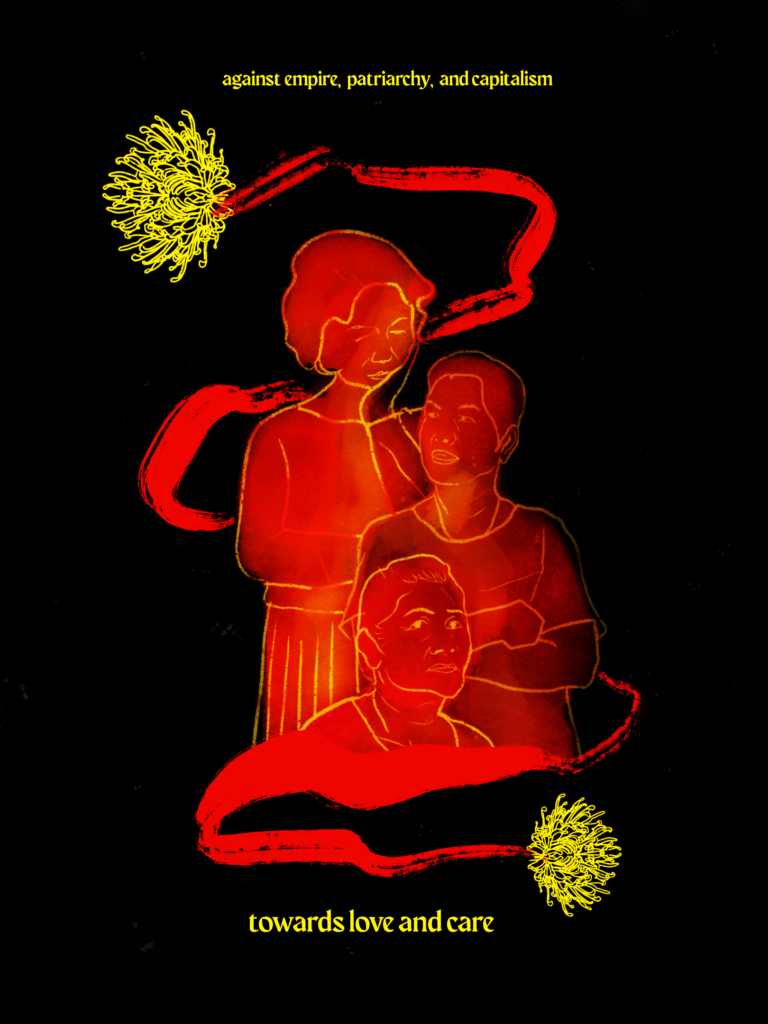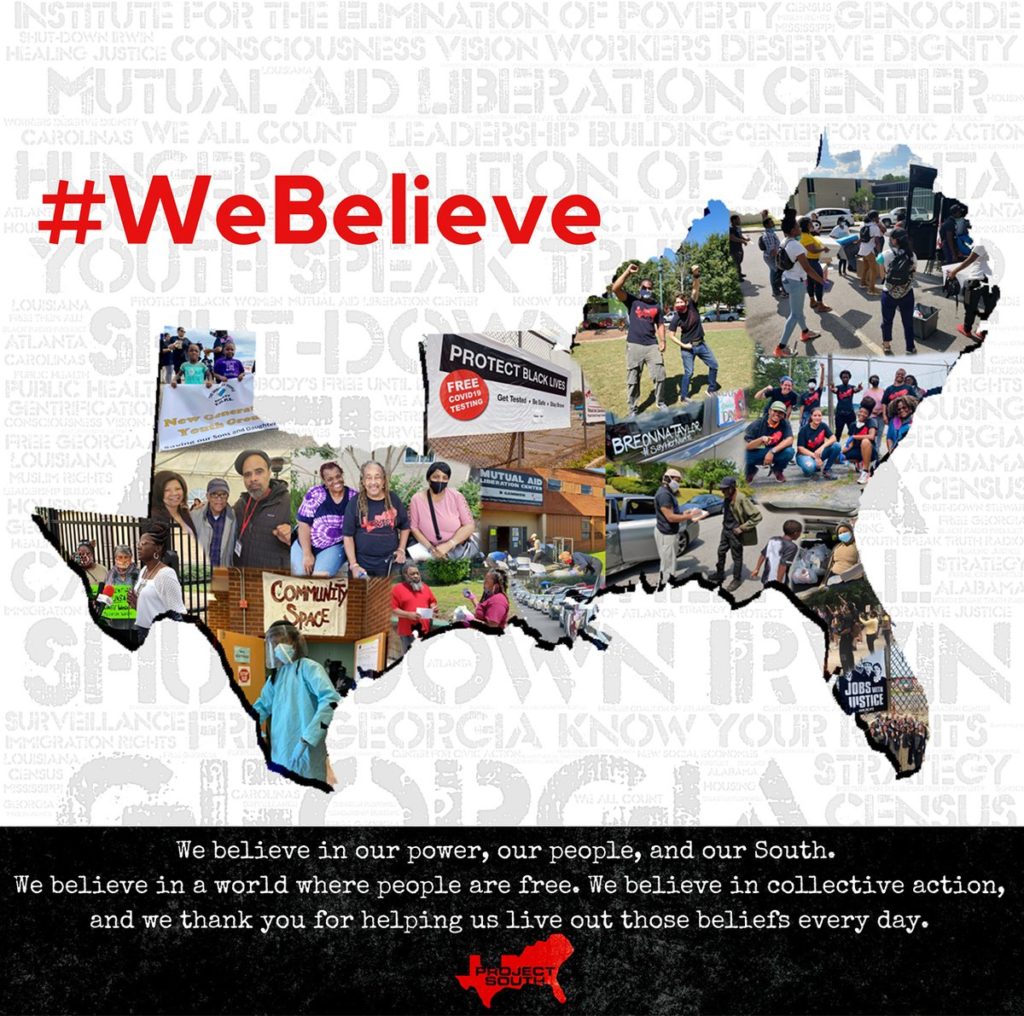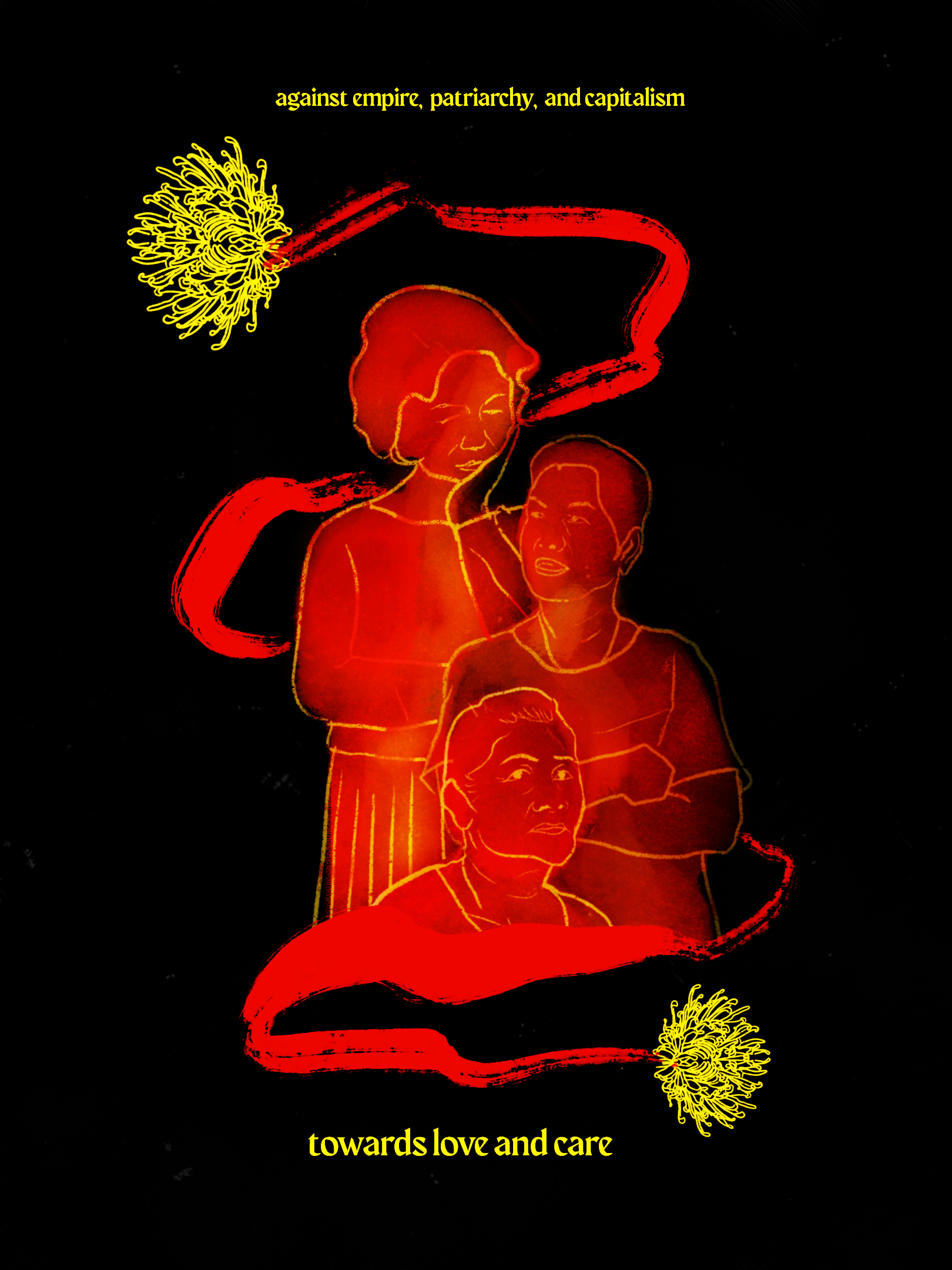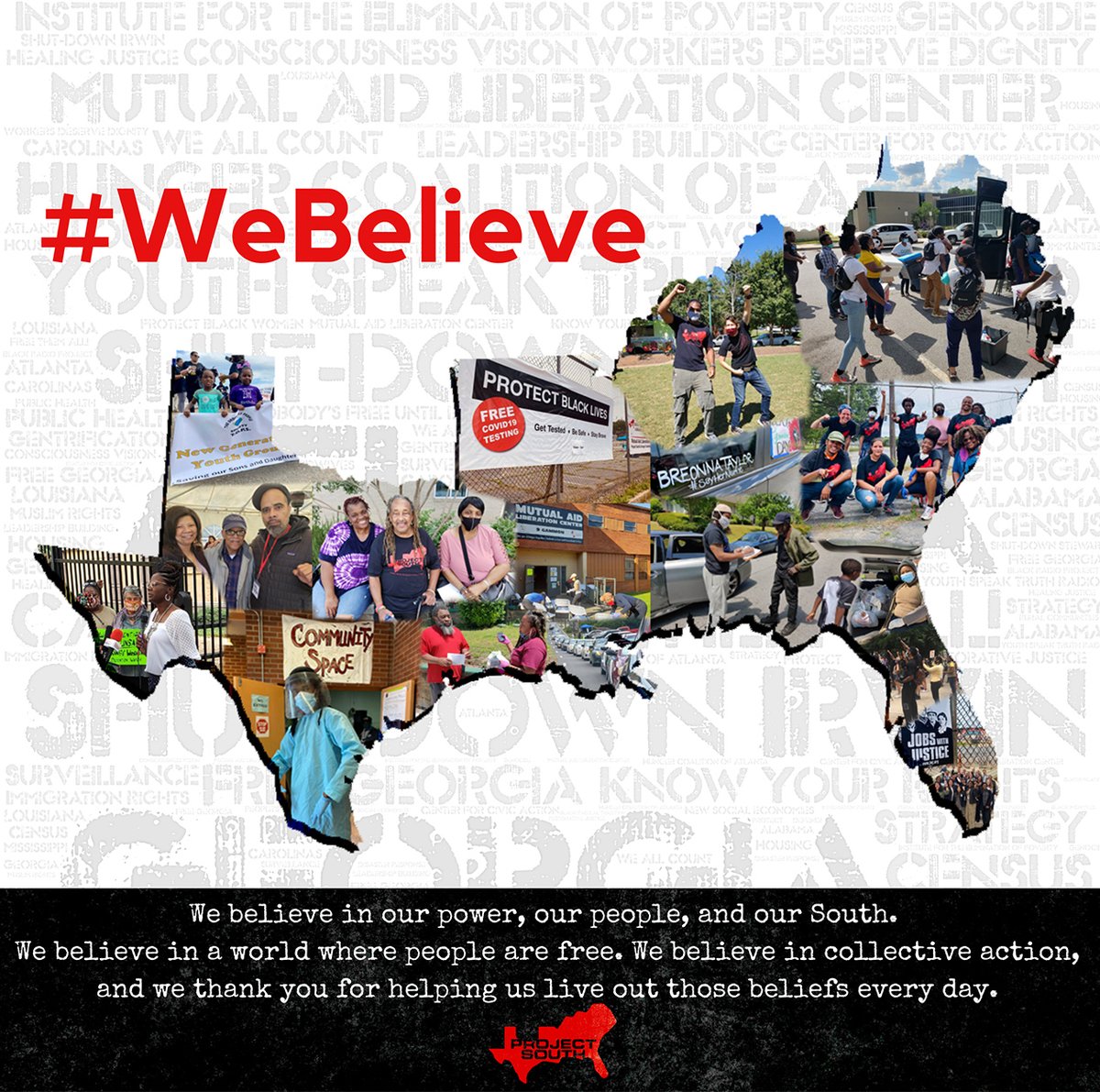Month: March 2021
Addressing the Rise of Anti-Asian American Racism and Xenophobia
Addressing the Rise of Anti-Asian American Racism and Xenophobia

The recent violent attacks against Asian Americans, and specifically working class Asian American women, in Atlanta, the Bay Area and across the country, are horrific and racist. Solidaire Network declares our solidarity with Asian American and Pacific Islander communities and renews our commitment to funding movement building at the critical intersections of racial and gender justice.
Since the start of the COVID-19 pandemic, Stop AAPI Hate has recorded a 1900 percent increase in anti-Asian hate crimes in the United States including verbal harassment, physical assault, civil rights violations and online harassment. Women reported hate incidents 2.3 times more than men. These crimes are tied to growing anti-Asian rhetoric from the right that has cast China as America’s enemy and refers to the coronavirus as the “China virus” or “Wuhan virus,” and has contributed to the rise of white nationalist violence targeting AAPI communities. But we know that violence against Asians in this country is not new and is, in fact, rooted in the legacy of white supremacy, patriarchy, colonialism, and militarization.
Since people of Asian descent arrived in the United States, they have faced various levels of discrimination, exclusion and violence. In 1854, not long after Chinese immigrants began settling in California and western states during the Gold Rush, the Supreme Court ruled in People vs. Hall that people of Asian descent could not testify against a white person in court. The Page Act of 1875 restricted laborers from “China, Japan or any Oriental country” from entering the U.S., but in reality was about preventing Chinese women from coming, targeting them as prostitutes. The Chinese Exclusion Act in 1882 later banned all Chinese immigrants completely for 10 years. World War II drove greater anti-Asian sentiment, particularly against the Japanese and led to more discriminatory laws, incarceration and internment. Vietnamese immigrants were also attacked after the Vietnam War by the KKK and white extremists. These are just a few examples that illustrate the history of racism and otherization of Asians in this country. There are, unfortunately, so many more.
It’s critical that in our fight against anti-Asian violence, that we do not give space for anti-Blackness or increased presence of police and the carceral state. We are committed to multiracial coalition building and resourcing Asian-led and community-centered approaches to safety.
To effectively dismantle racism against AAPI communities, the entire spectrum of direct services to long-term movement infrastructure deserves long-term investment and solidarity. AAPI movement groups have traditionally been underfunded and overlooked by philanthropy, especially system changing work led by working-class women and femmes of AAPI descent. Currently, less than 1 percent of philanthropic dollars goes to funding AAPI causes, despite a powerful history of organizing and multiracial solidarity work. Asian Americans have joined forces with other communities of color in protesting the American colonization of the Philippines, the Vietnam War, advocating for civil rights led by revolutionary leaders like Yuri Kochiyama and Grace Lee Boggs, organizing against police brutality with the Black Lives Matter movement, and defending land and water protectors with Indigenous communities. In each day and in many ways, AAPI-led efforts make social justice more possible in the United States.
We believe in operating from a place of abundance and join AAPIP’s call for funders and donors to commit an increased amount of giving to these communities. Solidaire is mobilizing funds to our movement partners and networks that are addressing community safety and fighting anti-Asian racism and xenophobia. Here are some such organizations:
- AAPI Women Lead
AAPI Women Lead and the #ImReadyMovement aims to strengthen the progressive political and social platforms of Asian and Pacific Islander communities in the US through the leadership of self-identified AAPI women and girls. Their goal is to challenge and help end the intersections of violence against and within AAPI communities while working in solidarity with other communities of color. - Asians Americans Advancing Justice- Atlanta
Asian Americans Advancing Justice-Atlanta is the first and only nonprofit legal advocacy organization dedicated to protecting the civil rights of Asian Americans, Native Hawaiians, and Pacific Islanders (AANHPI) in Georgia and the Southeast. Their work is focused on policy advocacy, organizing & civic engagement, impact litigation, and legal services. - Asian Pacific Environmental Network (APEN)
The Asian Pacific Environmental Network focuses on Asian immigrant and refugee communities in Oakland and Richmond, California, bringing together a collective voice to develop an alternative agenda for environmental, social and economic justice. Working with multiple generations of Asian Americans in multiple dialects and languages, APEN plays a critical role in developing the leadership of AAPI communities. - CAAAV
CAAAV Organizing Asian Communities works to build grassroots community power across diverse poor and working class Asian immigrant and refugee communities in New York City. They were founded in 1986 by Asian working class women alarmed by the spike of hate violence on Asian communities and its root causes stemming from institutional racism in the United States. - Chinese Progressive Association
Since 1972, the Chinese Progressive Association has been educating, organizing and empowering the low income and working class immigrant Chinese community in San Francisco to build collective power with other oppressed communities to demand better living and working conditions and justice for all people. CPA engages in community education and organizing around health and environmental justice,workers’ rights, housing, immigrant rights, and other issues of concern to the organization’s members and constituents. - Community Coalition for Safety and Justice
Community Coalition for Safety and Justice is a coalition of Asian American community organizations in San Francisco that are addressing inter-ethnic violence, anti-Asian racism, and building the city’s capacity to create alternatives to safety and justice. - Equality Labs
Equality Labs is a South Asian technology organization dedicated to ending caste apartheid, gender-based violence, Islamophobia, white supremacy and religious intolerance. They build power through multiple strategies including community organizing, art, research, and digital security. - New Breath Foundation
New Breath Foundation is a philanthropic foundation that offers hope, healing, and new beginnings for Asian American & Pacific Islander new immigrants and refugees, people impacted by incarceration and deportation, and survivors of violence.
For additional resources and links to learn more about supporting AAPI communities, check out:
Supporting Power-Building and Long-Term Recovery in the South
SUPPORTING POWER-BUILDING AND LONG-TERM RECOVERY IN THE SOUTH

Last month, a winter storm catastrophe devastated communities across the South, stripping millions of people of basic utilities and material needs. Weeks after the winter storms, power outages and water shortages, several Southern states are still dealing with serious infrastructure issues, particularly Texas and Mississippi.
This crisis compounds multiple frontlines of corporate and state infrastructure failures with climate-driven extreme weather as well as the long-term disinvestment in communities of color. For those familiar with disaster response, there are multiple phases of disasters and disaster response. While attention may already be shifting away from immediate relief, communities in the South still need support to meet their basic needs and build long-term resilience.
Meeting Immediate Needs
Solidaire Network believes strongly in funding trusted mutual aid networks on the ground and movement-led infrastructure organizations. In the immediate aftermath of the storm, our members mobilized nearly $35,000 to more than 50 organizations and individuals across the South working on mitigating the immediate impacts of the storm. Organizations like BASTA delivered mutual aid efforts delivering water and food while also organizing tenants associations at properties where tenants have had prolonged water and power outages, fusing ongoing mutual aid with long-term power-building. Youth Rise Texas, a Solidaire grantee and movement partner, provided much-needed financial support and relief for its members and their families, including cash for portable water and weekly groceries. Youth Rise Texas understands that current and future ability to organize and build power across the state is not possible if members’ basic needs are not met. The People’s Advocacy Institute is another great organization that launched a rapid response fund to deliver water and help clean up in Jackson and impacted rural communities throughout Mississippi.
Resourcing Groups on the Ground for the Long-Term
Our community also has been supporting partners such as the Southern Power Fund organizing for short and long-term recovery across the region. The Southern Power Fund (SPF) was launched in 2020 to support frontline communities in the South in responding to this critical moment and resisting systemic oppression. The four anchor organizations of the Southern Power Fund include Southerners On New Ground, The Highlander Research and Education Center, Project South and Alternate Roots.
The Southern Power Fund is rooted in place, connected to hundreds of grassroots organizers and organizations that have worked together for decades throughout the South. Although SPF is a new effort, they are gaining more attention because of their powerful work that is led by those directly impacted by various socio-economic, cultural, and climate crises. The fund’s work is not funder-driven or housed in national organizations or intermediaries, but instead led by a steering committee, made up of Southern legacy organizations and long-term organizers who have decades of relationships and experience in the region. Solidaire is on the steering committee as a member of the philanthropic organizing team for the fund, and our members raised over $1 million as part of last year’s $10 million fundraising goal.
While groups and individuals on-the-ground in seven Southern states were scrambling to help their neighbors affected by the storm, the Southern Power Fund focused on resourcing smaller, Southern groups immediately. So far, the fund has organized and sent over $1 million to 48 people of color-led, grassroots groups in states dealing with crises. The funds moved from Southern Power Fund are general operating support to assist the groups with rapid response efforts that supply and connect families with material needs, but also support community organizing and political education. Because their 2020 fundraising ask of $10 million had been met, the Southern Power Fund anchor organizations were ready to activate quickly with cash on hand to support efforts on the ground.
How You Can Get Involved
Institutional funders interested in supporting the Southern Power Fund can contact Tamieka Mosley from Grantmakers for Southern Progress at [email protected] or Chantelle Fisher-Borne from Funders for LGBTQ Issues at [email protected].
Grantmakers for Southern Progress shares this advice for institutions on providing funds to groups responding on the ground to the current crisis. Here are two directives from Southern organizers:
1. If you have existing grantees in affected areas that are rooted in the communities hardest hit AND you are able to move funds to them in the next two weeks, send these organizations additional funds that are easy to access and with ultimate flexibility to move the funds in response to what conditions on the ground call for; and
2. If you are not able to move quickly or do not have existing grantees rooted in the hardest hit communities, move funds into the Southern Power Fund. Here’s a link to a one-pager that outlines what the Southern Power Fund has been able to do in response to the storm.
To receive a list of additional organizations that Solidaire members are supporting, please reach out to our Movement Partnerships & Grantmaking Practitioner Ada Smith: [email protected].

